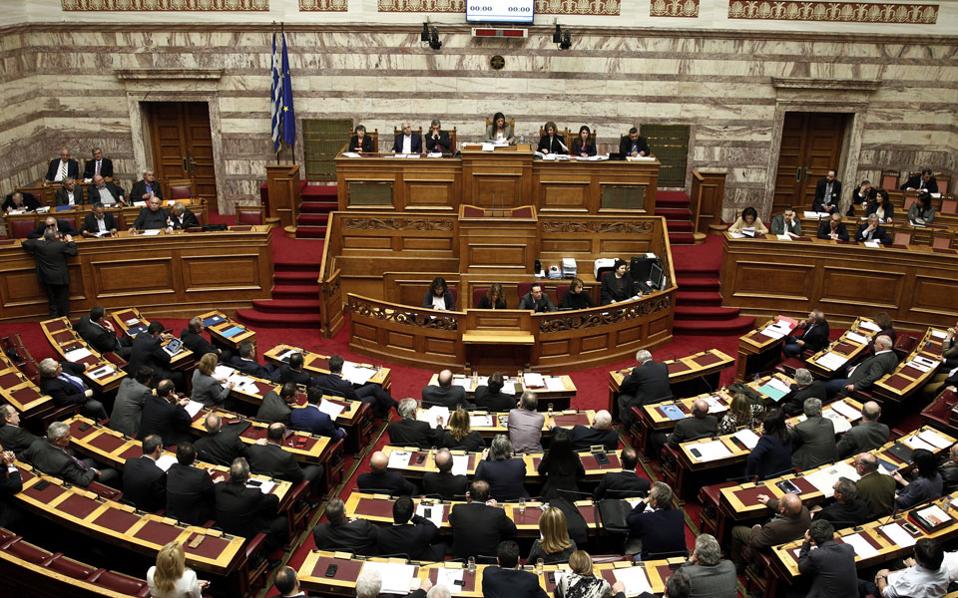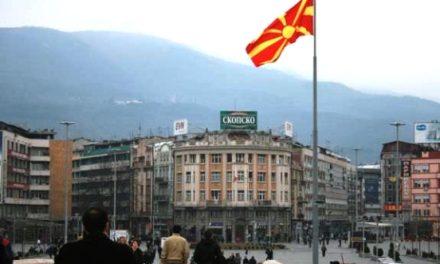The Greek parliament early Saturday morning approved a “multi-bill” including a large number of economic reforms imposed by the bailout agreement with its European creditors.
Passage of the bill should release the next tranche of bailout payments for Greece. If the eurozone countries and the institutional creditors — the International Monetary Fund, the European Central Bank, and the EU — agree, Greece will receive a €2 billion ($2.3 billion).
Reforms included raising the retirement age, tougher punishment for tax evasion,and labor and energy market liberalization, among the 19 articles in the bill.
The bill was voted by the ruling coalition of left-wing SYRIZA and the rightwing Independent Greeks parties. The coalition of controls 155 seats which all voted in favor of the bill — only 151 were required for passage.
Parliamentary discussion on the 19 article multi-bill entitled “Measures for the implementation of the agreement on fiscal targets and structural reforms” had started at committee level on Tuesday and in plenary on Friday.
The draft law aims to penalize early retirement and expand an unpopular property tax (ENFIA).
In addition, prison sentences and assets commitment for the offense of tax evasion, increases on property taxes and income from rentals, value-added tax and private education are also included, although they were subject to heated debate.
There is still considerable opposition to the reforms both within parliament and among the people. A Communist-backed labor union and Civil Servants’ Confederation held protests in central Athens during Friday’s parliament sessions while six opposition parties had pledged to vote against the bill.
Evangelos Meimarakis, leader of the main opposition party, the rightwing New Democracy, rejected the bill in Parliament on Thursday: “Vote for them on your own: They create problems for society,” he said. “We voted for the program, which contains targets and a timetable,” he went on to explain why New Democracy backed the third bailout in Parliament in August. “These measures are yours,” he added.
The debate in parliament on Friday included some lively exchanges among political opponents, showing that opinion is anything but unified in supporting the reforms.
Prime Minister Alexis Tsipras accused the opposition of only being interested in power and not in solutions. “The uproar over new measures and new tax burdens was futile. There are no new measures,” Tsipras said . He also referred to the “difficult measures” of the bill which “opposition parties New Democracy, Pasok and Potami knew about in August when they voted for the deal and now refuse to vote for”.
“What exactly are you pretending to be today? Against the memorandum? For five years you agreed to do whatever the lenders told you without negotiating” said the Prime Minister slamming the opposition parties.
Addressing Tsipras, Vangelis Meimarakis said: “We are not SYRIZA. We will vote only what is non-recessionary, what is in the interest of the country and against the measures we consider opposed to development and anti-social. We will not give you a carte blanche.”
New Democracy MP Nikos Voutsis accused the Prime Minister of “bringing a bad deal to the country for which he doesn’t apologize.”
In line with New Democracy, head of the socialist-liberal Potami Theodorakis wondered “How much SYRIZA’s movement towards the Europe will cost the Greek people” referring to the government’s previous mistakes in the negotiations and refugee crisis.
Golden Dawn leader Giorgos Mihaloliakos pointed out that the multi-bill will destroy the Greek pharmaceutical industry while it will rapidly advances the selling off and privatization of the country’s assets.
What is next for the government is the adoption of the second package of bailout reforms by late October-early November If eurozone countries agree, this would release the next bailout payment of €1 billion ($1.2 billion).



















